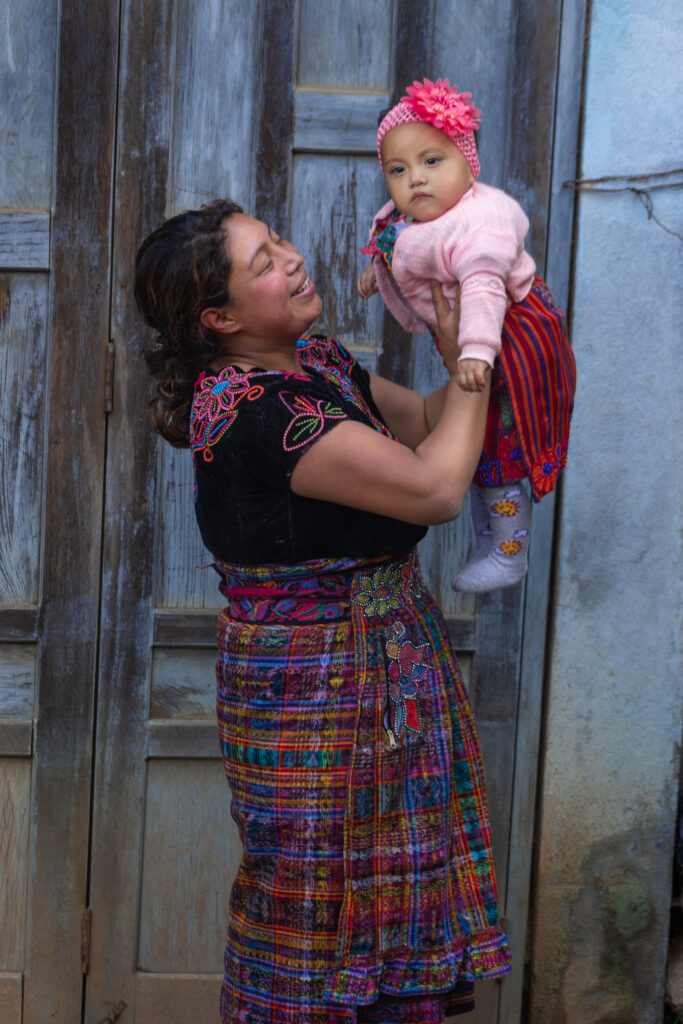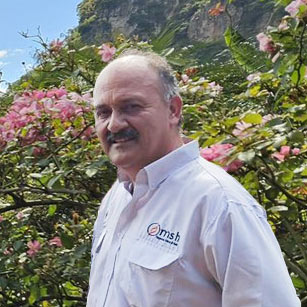Healthy Mothers and Babies in Guatemala (Utz’ Na’n)
Healthy Mothers and Babies in Guatemala (Utz’ Na’n)

Overview
The Healthy Mothers and Babies in Guatemala project (2021–2027), known locally as Utz’ Na’n, is dedicated to improving the health of Indigenous pregnant women, mothers, and their newborns in the departments of Quetzaltenango, San Marcos, Sololá, and Totonicapán. The project focuses on increasing access to and use of high-quality, culturally respectful antenatal care (ANC) and postnatal care services, ensuring that women receive the care they need during pregnancy and beyond.
Building on the success of the Strengthening Antenatal Care for Indigenous Women in Guatemala project (2019–2021), Utz’ Na’n has significantly advanced early and consistent ANC attendance among Indigenous pregnant women and adolescents. The project has also improved quality of care by strengthening the use of data for decision-making, tracking clients by gestational age, and enhancing record-keeping practices.
Since launching in 2019, Utz’ Na’n has made significant strides in improving maternal and newborn health in Guatemala, where the maternal mortality ratio stands at 103 deaths per 100,000 live births—the sixth highest in the Latin America and the Caribbean region. Indigenous women, who comprise 44% of the population, are disproportionately affected, accounting for two-thirds of maternal deaths in the country.
Expanding our Reach and Focus
In 2024, MSH received a three-year extension to continue and expand our work, reaching new areas based on needs assessments and strengthening our work in nutrition, postnatal care, and child health. Since its launch, Utz’ Na’n has expanded to cover 18% of the country, working across four departments. A major milestone in our expansion is the full implementation of group ANC facilitators in 100% of the municipalities of San Marcos and Quetzaltenango, 50% of Sololá, and as of March 2025 in Totonicapán.
Today, Utz’ Na’n’s approach integrates interventions specifically targeting the 1,000-day window of opportunity—a critical period for ensuring the health and development of both mother and child.
Project Objectives
- Integrate nutrition strategies to support mothers and children during the first 1,000 days of life.
- Expand ANC coverage through community mobilization and remote support.
- Enhance the quality of ANC services to meet the needs of Indigenous pregnant women and adolescents with respect and understanding.
- Generate evidence and insights to inform the development of culturally sensitive health policies and practices.
To achieve these goals, Utz’ Na’n emphasizes community engagement, equipping traditional birth attendants- or comadronas-to connect women with health services, promoting youth involvement, and strengthening local capacity through participatory planning and monitoring.
Management Sciences for Health to Continue Enhancing Maternal and Infant Health in Guatemala
MSH will expand its support of Guatemala’s Ministry of Health and Social Assistance efforts to improve maternal, newborn, and child health among indigenous families for three additional years in the Departments of Quetzaltenango and San Marcos.
Healthy Mothers and Babies in Guatemala (Utz’ Na’n) Fact Sheet
Building on the success of the Strengthening Antenatal Care for Indigenous Women in Guatemala project (2019–2021), Utz’ Na’n has significantly advanced early and consistent ANC attendance among Indigenous pregnant women and adolescents. The project has also improved quality of care by strengthening the use of data for decision-making, tracking clients by gestational age, and enhancing record-keeping practices.

Dr. Gustavo Barrios
Project Director
Project Contact
Dr. Gustavo Barrios, a physician and surgeon, is Utz’ Na’n’s project director. He has more than 25 years of experience supporting the design and expansion of integrated and culturally responsive care for pregnant women and children in community-based health programs, with a special focus on Indigenous communities. Over a career that spans more than 30 years, Dr. Barrios has had leading roles in the implementation of several health programs and acted as a consultant for a wide range of funders, including USAID, the World Bank, the European Union, and more. Dr. Barrios earned his degree in medicine from the University of San Carlos de Guatemala and holds master’s degrees in project development and health administration.
Donors & Partners
Donors
Margaret A. Cargill Philanthropies
Partners
Asociación PIES de Occidente (PIES)
Observatory for Sexual and Reproductive Health (OSAR)






